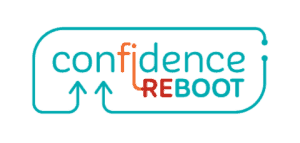
Building confidence in others is a journey, not just for the individual but for those around them. It’s about understanding the roots of low self-confidence, fostering a supportive environment, and using effective techniques to uplift and empower.
Low self-worth or diminished self-confidence can lead to self-questioning and negative self-dialogue, adversely affecting one’s mental health, well-being, and overall performance.
Let’s explore how we can make a difference in someone’s life by boosting their self-confidence.
Table of Contents
Understanding The Roots Of Low Self-Confidence
Someone with a confidence issue, i.e. low self-confidence, typically holds certain beliefs and attitudes that are rooted in his/her past experiences.
For example, a person may be convinced that he/she is incapable of succeeding due to being labeled as “stupid” or “lazy” by someone else in the past.
By recognizing these triggers, we can better address the underlying issues of lack of confidence and become more confident people.
- Past experiences: Negative feedback or traumatic events can lead to a lack of confidence. For instance, a person who faced ridicule in high schoolers’ public speaking class might dread similar situations in adulthood.
- Societal pressures: Social media, for example, can distort our perception of success, making individuals feel they aren’t achieving enough.
- Lack of knowledge or skills: Not knowing how to perform a task can lead to low confidence. Imagine being thrust into a new job without proper training.
Building A Feeling Of Trust
When it comes to helping someone, in most any situation, one of the first things to do is to build a feeling of trust between you and that person.
Building trust is fundamental when helping someone with their confidence level. Here are some steps and strategies to foster trust:
- Active Listening: Truly listen to what the person is saying without interrupting. This shows that you value their thoughts and feelings.
- Empathy: Put yourself in their shoes. Understand and validate their feelings, even if you don’t necessarily agree with their perspective.
- Consistency: Be consistent in your actions and words. If you promise something, follow through.
- Open Communication: Be transparent about your intentions and methods. Avoid hidden agendas.
- Non-judgmental Approach: Avoid passing judgment or making them feel inferior. Everyone is at a different point in their journey.
- Confidentiality: Ensure that the conversations remain private. This is especially crucial in a coaching or therapeutic setting.
- Share Personal Experiences: Sometimes, sharing a relevant personal experience (without overshadowing their story) can show them that you understand their feelings.
- Set Clear Boundaries: Ensure both parties understand the nature of the relationship and maintain professional boundaries.
- Celebrate Small Wins: Recognize and celebrate their achievements, no matter how small. This can boost their confidence and trust in the process.
- Provide Constructive Feedback: Instead of just pointing out what’s wrong, offer solutions or alternative perspectives.
- Be Patient: Building trust takes time. Be patient and give them the space they need.
- Show Respect: Treat them as an equal and respect their opinions, even if they differ from yours.
- Educate: Sometimes, understanding the ‘why’ behind a method or advice can help in building trust. Offer resources or explanations when appropriate.
- Admit Mistakes: If you make a mistake or give incorrect advice, own up to it. This shows integrity and authenticity.
- Ask for Feedback: Periodically ask for feedback on how you can serve them better. This shows that you’re committed to their growth and well-being.
- Be Genuine: Authenticity is key. People can sense when someone is being insincere.
- Avoid Overpromising: Set realistic expectations. Overpromising and under-delivering can damage trust.
- Collaborative Approach: Instead of dictating what they should do, work together to find solutions. This empowers them and fosters a sense of partnership.
- Physical Cues: Maintain eye contact, nod in agreement, and use open body language. These non-verbal cues can enhance feelings of trust.
- Consistent Availability: Ensure that you’re available for scheduled sessions and check-ins. If they feel you’re invested in their progress, they’re more likely to trust you.
Remember, trust is fragile. Once broken, it can be challenging to rebuild. Always prioritize the well-being and feelings of the individual you’re assisting.
20 Things To Say To Someone To Boost Their Confidence
In addition to the many ways that you can help someone to improve their confidence and self-esteem, there are also some helpful things that you can say to help them.
Here are 20 affirmations and statements you can use to boost someone’s confidence:
- “You have a unique set of skills and talents that no one else possesses.”
- “Remember all the challenges you’ve overcome in the past; this is just another one you’ll conquer.”
- “You are deserving of every success and happiness that comes your way.”
- “Believe in yourself as much as I believe in you.”
- “Every experience, good or bad, is a lesson that shapes your strength and character.”
- “Your potential is limitless.”
- “You bring something special to the table; trust in your abilities.”
- “Mistakes don’t define you; they help you grow.”
- “You are worthy of respect and admiration.”
- “Your ideas and perspectives are valuable and deserve to be heard.”
- “You’ve got this! I’ve seen you handle tough situations before.”
- “Your resilience and determination inspire those around you.”
- “You are not alone; lean on those who believe in you.”
- “Every step you take, no matter how small, is progress.”
- “You have the power to change and evolve; trust in your journey.”
- “Your authenticity is your strength; embrace who you are.”
- “Celebrate your achievements, no matter how minor they might seem.”
- “You are deserving of love, kindness, and success.”
- “Challenges are opportunities in disguise; you have the tools to navigate them.”
- “Your confidence will grow with each challenge you face and overcome.”
Feel free to adapt these statements to fit the specific needs and situations of the individuals you’re helping.
The Role Of Empathy In Boosting Confidence
Empathy is the ability to understand and share the feelings of another. It’s a key trait in human beings that can help boost confidence in others.
- Understanding feelings: Recognizing when someone is stepping out of their comfort zone or trying new things can provide an opportunity to offer support.
- Validating emotions: Let them know that it’s natural to have negative thoughts but that they don’t define their worth.
Confident people are better equipped to handle life’s stressors, so it’s important to create a safe space for open dialogue and provide tools for self-growth.
Effective Communication Techniques
Communication is more than just words; it’s about making the other person feel seen and understood. It’s a great tool in building confidence.
- Active listening: This means fully concentrating on what’s being said rather than just passively ‘hearing’ the message. For instance, if someone is nervous about public speaking, listen to their concerns without interruption.
- Constructive feedback: Instead of saying “That didn’t go well,” try “Next time, maybe you could try this approach.”
Encouraging Positive Self-Talk
Our inner critic can be our own worst enemy. Negative self-talk can erode our confidence levels, but the good news is that it can be changed.
- Redirecting negative thoughts: Instead of thinking “I can’t do this,” encourage the thought “I will do the best I can.”
- Promoting a positive mindset: Positive affirmations can be a powerful tool. Simple statements like “I am capable” or “I can handle this” can make a huge difference.
Setting Achievable Goals
Setting realistic goals can provide a clear path to boosting confidence. It’s about balancing ambition with realism.
- Small goals: Starting with a small goal, like making a to-do list for the day, can give a sense of achievement.
- Celebrating achievements: Recognize the hard work that goes into achieving even minor tasks. It can be as simple as acknowledging the effort it took to meet new people at a social event.
Role Modeling And Mentorship
Having someone to look up to can provide great insight into how to handle different situations and challenges.
- Positive role models: Confident people, whether they’re celebrities or family members, can inspire others to believe in their own abilities.
- Mentorship: This involves guiding someone through various aspects of life, offering advice, and sharing personal experiences.
- Eye contact: Give them direct eye contact to show them that you are interested and supportive.
- Physical contact: Reaching out and touching someone on the shoulder or arm can make them feel reassured and at ease.
Encouraging Skill Development And Learning
Learning new skills or enhancing existing ones can be a great way to boost confidence.
- Continuous learning: Encourage taking up a new hobby or attending workshops. For instance, joining a pottery class or learning a new language can be both fun and confidence-boosting.
- Skill enhancement: If someone feels they have a lack of skills in a particular area, encourage them to seek training or courses.
Building A Supportive Environment
A supportive environment can make all the difference in boosting someone’s confidence.
- Positive surroundings: Surrounding oneself with positive people who uplift and encourage can work wonders. Avoiding negative influences, especially on social media, can also help maintain a healthy self-esteem.
- Safe spaces: Create environments where individuals feel they can express themselves without judgment.
Recognizing And Celebrating Achievements
Every achievement, big or small, deserves recognition. It reinforces the belief that one is capable of great things.
- Validation: Simple gestures like a pat on the back or words of encouragement can go a long way.
- Recognizing progress: It’s not always about the end goal. Celebrating the journey and the progress made can boost confidence immensely.
Addressing And Overcoming Setbacks
Setbacks are a part of life, but they don’t define us. It’s how we handle these challenges that shapes our confidence.
- Navigating challenges: Encourage a growth mindset. Instead of seeing setbacks as failures, view them as learning opportunities.
- Rebuilding confidence: Remind them of past successes and how they overcame similar situations before.
Seeking Professional Help
Sometimes, the best thing one can do is seek professional guidance.
- Therapists and counselors: Professionals can offer strategies and tools to deal with low self-confidence. They can provide a fresh perspective and offer techniques tailored to individual needs.
- Support groups: Joining groups where individuals share their experiences and challenges can offer comfort and understanding.
Boosting someone’s confidence is a continuous journey, filled with ups and downs. But with understanding, support, and the right tools, we can make a lasting impact on someone’s life.

